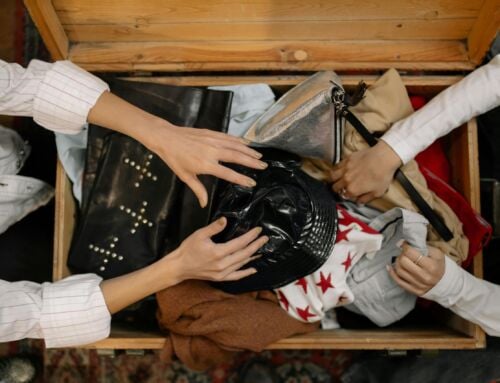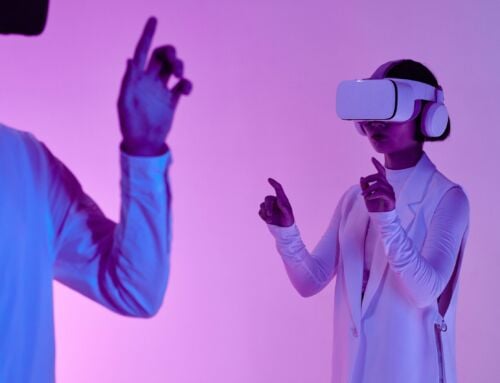We set out to meet Diane Ducasse, a young fashion entrepreneur who founded her womenswear brand DADA three years ago. A brand that honors femininity in all its complexity and extravagance, through pieces with unstructured, masculine lines. She talks to us about her experiences and how she came to found her own fashion label.
- Why did you decide to found your own brand? Can you tell me the story of DADA?
Diane Ducasse: I founded it two years ago, but the idea came to me three years ago. It wasn't a dream, it was more an instinctive and spontaneous decision, without thinking too much, because I was guided by my instinct, it just fell into my lap. I was at a point in my life where I could afford to do it.
I'd been doing a lot of freelance work, and I wanted and needed to do a project that looked like me from start to finish. It's not always easy to stick to a company's codes. So, by necessity, it was more a personal need than a real ambition. And then, the machine started to work, and on the one hand, it's really interesting, and on the other, it's pretty scary!
- So you're currently involved in several activities at the same time?
Exactly. As well as designing collections for my own brand, I teach fashion design at fashion schools and freelance for Inès de La Fressange for over two years. I don't live by DADA alone, but it's above all a choice.
Today, my brand is not my priority, because I need another job on the side, one that allows me to lift my head from the handlebars and have other contacts to help me expand my network. In fact, I must confess that I like to do lots of things at the same time.
- Can you tell me about your background and studies?
I did a Bac S and then a HEC prep school, then I went to the United States for a while. When I came back to Paris, I applied to a fashion school and studied there for a year and a half.
From then on, I was taken on as a trainee at Lanvin directly in the second year, then at Marc Jacobs. I have also worked for Michel Vivien, where I worked on accessory and shoe design. Finally, for a year, I was the right-hand man to Vincent Darré, the decorator and stylist.
Thanks to this experience, I touched on everything and met a lot of very interesting people. And then I started freelancing, doing a lot of shoes and bags.
- How long did it take you to create your brand? From the moment the idea germinated in your head to its foundation?
Three years. I thought about launching the brand in September 2015, and by October I was coming up with the name, starting to look for suppliers, workshops... Then I started designing the first pieces. And the brand was created and registered in February 2016.
- Have you decided to go it alone? Why or why not?
Yes, I started out on my own and to tell you the truth, I didn't think too much about it. In fact, I think I have a bit of trouble delegating. It's a way of doing what I really want to do. Originally, I wanted to do a project that was like me from start to finish, so being on my own gave me a lot of freedom in that respect.
Of course, as the brand develops, I'm going to need to surround myself with people. I'm still on my own today, because it's hard to find the right people, to make sure they're available at the right time. You can't ask everyone to be as committed as you are! But I'm starting to look for a right-hand man, a partner.
- What do you see as the main difficulties and obstacles in creating a fashion brand?
So, personally, I have a real problem with anything administrative. It's not my forte, I don't really like it. At the start, you think you're going to launch your brand and do your job as a designer to the full, but then you quickly realize that it involves a lot of things you hadn't necessarily considered at the outset. You have to register the company name, keep the accounts, create a website...
But, to my great surprise, I realized that I enjoyed it all, simply because I love learning new things. It's all new, and that's what can be so confusing and exciting at the same time.
And then, one of the main difficulties lies in making the right decisions, not getting it wrong from the outset. It's a question of choosing the right price range, defining your strategy, positioning yourself in the market and so on. And then, of course, finding suppliers and manufacturers, gaining their trust, learning the nuts and bolts of production... You learn all this on the job!
- What do you think are the key factors in creating your own fashion brand?
Courage, patience, energy and, above all, passion!
- How did you go about getting yourself known? Did you already have a good network? What communication techniques did you establish?
As my experiences have progressed, I've managed to build up quite a large network. But the journalists who talked about me from the start were people I didn't know at all. In fact, the spread of my brand isn't necessarily linked to my network. I think it has more to do with the product itself and the image of the brand.
I work a lot on the image of my lookbooks. The product appeals, it works well. I also noticed that the press really liked my story, the story of the brand's creation. So they asked me to do a lot of portraits. It's true that the press has been interested in DADA right from the start.
- Tell me a little about your image and the importance of social networks for your brand.
Originally, social networks and I were two different things! I was one of the few people not to be on Facebook or Instagram, so I've come a long way! To tell you the truth, I didn't really like it. When I launched my brand, Instagram was just starting to blossom. It wasn't as strong as it is now. I didn't see much point in it, I thought relationships were pretty skewed with this kind of application.
But finally, I got on Instagram, because I ended up finding a real interest in it. It's a real job! I try to post every day, and I realized that my customers had a demand for it. Today, I have customers who are discovering me on Instagram, I have press who are discovering me on Instagram, and boutiques are also discovering me on Instagram.
So today I can tell you that it's essential and that I can't do without it. I think that when you're a fashion brand, you can't escape this network.
- What inspires you? Are there any designers who particularly touch you?
Yohji Yamamoto, Comme des Garçon, Yves Saint Laurent, Margiela... I love the designers of those years, who deconstructed clothing, or made women very feminine with men's clothes. I try to mix costume, Parisian elegance and nonchalance, deconstruction, New Age...
Otherwise, for my collections, I draw inspiration from films I see, exhibitions I go to, trips I take... But a lot from films, it's true. At the moment, I have a weakness for very traditional English style, «hunting and fishing» clothes. I'm also inspired by all things Japanese.
- How long does it take you to create a collection?
I don't dare tell you the truth, but I actually make my collections in an afternoon! In fact, I think about it from morning to night for months on end, so it's really a day's work!
- What's the difference between designing for a fashion house and designing for your own brand?
Firstly, I don't have the same budget and I don't have as many teams working for me. As a result, I'm going to be more confident. Unlike the brands I've worked for, I don't create prototypes only to abandon them.
When I decide on something, it's bound to come to fruition. Otherwise, on a small scale, it works the same way. There aren't a thousand different ways of creating collections.
- What advice would you give to those who want to create their own fashion brand?
I think you have to decide to give yourself to 100% in your company. You have to know that it's a job that requires twice as much energy as most people. You have to be really into it. The steps aren't easy, and you have to be brave. There are sometimes difficult things to manage, like relations with suppliers and manufacturers. You're totally dependent on people. What I find complicated is not being able to control certain things.
It's also important to keep a tight rein on your budget, because making clothes is often quite expensive. Finally, I think it's essential to have a real identity. Either you have to have a tried-and-tested marketing image, or you've defined a distinct style and therefore need a real identity to stand out from the crowd. I think what appeals about my brand is its identity, quality, comfort and history. I've noticed that my customers are very interested in the story behind the clothes.
- How do you relate to your customers?
I'm very close to my customers, we have an almost friendly relationship. I'm very proud of my customers, and I consider myself very lucky. I think that meeting the designer inevitably leads to a more intimate, more human relationship. It's very nice to have this very close relationship with her. They give me a real follow-up, even though they don't have to! They send me photos of the clothes they've worn, they tell me the compliments they've received...
- What are your plans for the future?
I still have plans. I'd like to do a pop-up store in September, but also try to organize collaborations with brands I like. I think it's something that works well, to make yourself known, broaden your clientele, and then get to know other people too. I'd also really like to do shoes, capsules and men's collections. I also really want to open a boutique. There's so much to do!
- Where can we find your creations?
On my website. I also have a showroom apartment in the sixth arrondissement of Paris. My pieces are also sold to retailers. But my best sales are direct sales, i.e. in the showroom, pop-up stores or on the e-shop. My pieces are also sold abroad.
If you want even more advice on how to launch your own brand, read our article on how to launch your fashion brand in 5 essential questions.




